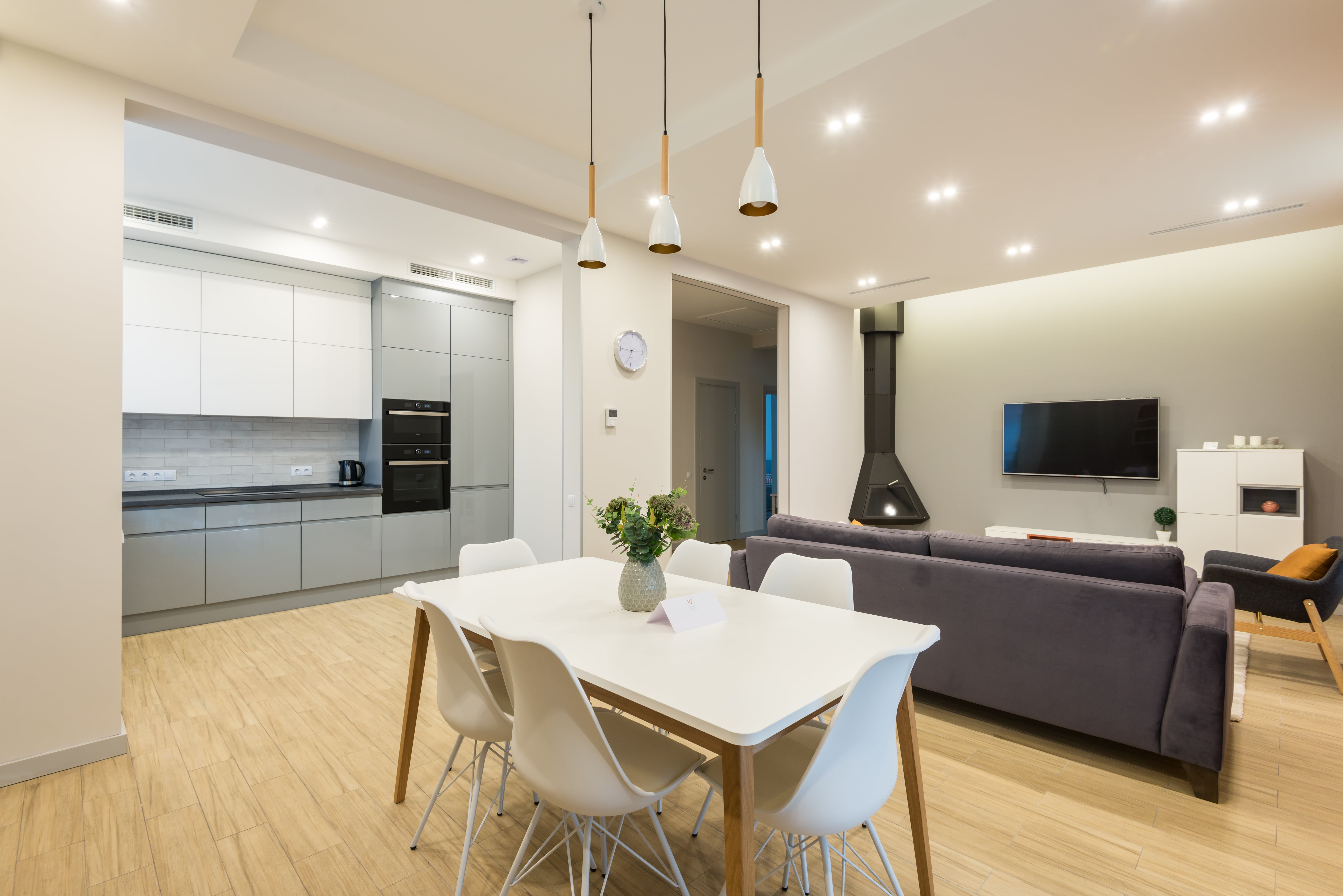When it comes to flooring options, hardwood is a timeless and elegant choice that can enhance the beauty of any space. However, choosing between engineered hardwood and solid hardwood can be a challenging decision for homeowners.
Both options have their merits, and the choice often depends on various factors such as budget, climate, and personal preferences.
The beauty of hardwood flooring
Hardwood flooring is renowned for its natural beauty, warmth, and durability. It adds a touch of sophistication to any room and can significantly increase the value of your home. The classic appeal of hardwood makes it a popular choice for homeowners looking to create a timeless and elegant aesthetic.
Solid hardwood: a traditional choice
Solid hardwood flooring is a classic and traditional option that has been a staple in homes for centuries. It is made from a single piece of wood, providing a genuine and authentic feel underfoot. The thickness of solid hardwood allows for sanding and refinishing multiple times, making it a long-lasting option that can stand the test of time.
Advantages of solid hardwood
Solid hardwood comes with several advantages that make it a compelling choice for many homeowners. One of the key benefits is its ability to be sanded and refinished multiple times. This means that if the surface gets scratched or worn over the years, it can be restored to its original beauty with a simple refinishing process.
Additionally, solid hardwood offers a wide range of species, each with its unique grain patterns and colors. This variety allows homeowners to choose a wood species that complements their interior design and personal style. The natural aging of solid hardwood also adds character to the flooring, giving it a charming and distinctive appearance.
Engineered hardwood: a modern alternative
Engineered hardwood, on the other hand, is a more modern and versatile option. It is constructed from multiple layers of wood, with a top layer of genuine hardwood. The layers are glued together in a cross-grain pattern, providing stability and resistance to moisture. This construction makes engineered hardwood less prone to warping and shrinking, making it suitable for areas with fluctuating humidity levels.
Advantages of engineered hardwood
One of the main advantages of engineered hardwood is its versatility. Its layered construction allows for a greater variety of wood species to be used as the top layer. This means that you can achieve the look of rare or exotic hardwoods without the hefty price tag. Engineered hardwood is also more environmentally friendly, as it often utilizes less hardwood in its construction compared to solid hardwood.
Another notable advantage of engineered hardwood is its resistance to moisture. Solid hardwood is susceptible to changes in humidity, which can lead to expansion and contraction. Engineered hardwood's layered structure helps mitigate these issues, making it a suitable choice for areas like basements and kitchens where solid hardwood might not be the best fit.
Factors to consider when choosing
When deciding between engineered and solid hardwood, several factors should be taken into consideration. Budget, climate, and lifestyle all play crucial roles in making the right choice for your home.
Budget considerations
Solid hardwood is typically more expensive upfront than engineered hardwood. If you're working with a limited budget, engineered hardwood can offer a cost-effective solution without compromising on the aesthetic appeal of hardwood flooring. However, it's essential to weigh the initial cost against the long-term investment, considering the potential for refinishing solid hardwood over the years.
Climate and location
The climate in your region can also impact your choice between engineered and solid hardwood. Solid hardwood is more sensitive to changes in humidity, so in areas with high humidity or frequent fluctuations, engineered hardwood may be the more practical option. Consider the location of the installation—whether it's a ground-level room, basement, or an area prone to moisture exposure.
Lifestyle factors
Your lifestyle and how much traffic the space receives are crucial factors. Solid hardwood's ability to be sanded and refinished makes it a durable choice for high-traffic areas. However, engineered hardwood's stability and resistance to moisture make it suitable for busy households, especially those with kids and pets.
A seamless solution: hardwood from H W Flooring
In the debate between engineered hardwood and solid hardwood, there is no one-size-fits-all answer. Both options have their strengths, and the right choice depends on your specific needs, preferences, and circumstances. Solid hardwood offers a timeless, traditional look with the ability to be refinished, while engineered hardwood provides versatility and resistance to moisture.
Ultimately, the better investment will depend on your budget, the climate of your region, and the demands of your lifestyle. Whichever option you choose, hardwood flooring adds undeniable value and charm to your home.
For expert guidance on choosing the perfect hardwood flooring for your home, visit H W Flooring in San Diego, CA. Our experienced team can help you explore a wide range of options, from solid hardwood to engineered hardwood, ensuring you make an informed decision tailored to your unique needs. We proudly serve the areas of San Diego, Poway, Rancho Santa Fe, Del Mar, Escondido, and 4S Ranch, CA. Elevate your home with the timeless beauty of hardwood flooring—contact H W Flooring today!







